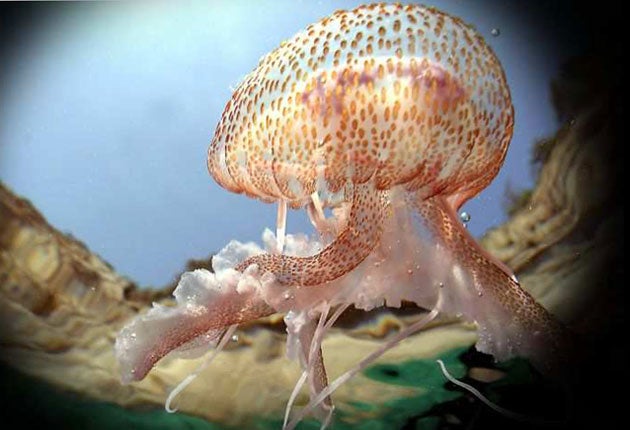To pee or not to pee? Red Cross says using urine on jellyfish stings won't help

Your support helps us to tell the story
From reproductive rights to climate change to Big Tech, The Independent is on the ground when the story is developing. Whether it's investigating the financials of Elon Musk's pro-Trump PAC or producing our latest documentary, 'The A Word', which shines a light on the American women fighting for reproductive rights, we know how important it is to parse out the facts from the messaging.
At such a critical moment in US history, we need reporters on the ground. Your donation allows us to keep sending journalists to speak to both sides of the story.
The Independent is trusted by Americans across the entire political spectrum. And unlike many other quality news outlets, we choose not to lock Americans out of our reporting and analysis with paywalls. We believe quality journalism should be available to everyone, paid for by those who can afford it.
Your support makes all the difference.An unexpected boom in the number of jellyfish swarming around our coasts has prompted an unusual warning from the British Red Cross – don’t pee on a jellyfish sting.
The widespread belief that urine is the best cure for a jellyfish sting is probably best-known from an episode of Friends in which Chandler has to urinate on Monica’s leg after she is stung.
But following warnings from the Marine Conservation Society that the warm weather has sparked an increase in the numbers of several species of jellyfish, the British Red Cross has warned beach-goers not to believe “the old myth”.
“A sting from a jellyfish can be extremely painful, but trying to treat it with urine isn’t going to make your day any better,” said Joe Mulligan, head of first aid at the British Red Cross.
“Urine just doesn’t have the right chemical make-up to solve the problem,” he added.
A better treatment would be to pour seawater or vinegar over the sting.
“If people get stung, they need to get out of the water to avoid getting stung again. Once out, slowly pouring seawater over the sting will help ease the pain,” said Mr Mulligan. “Doing the same thing with vinegar can be even more effective as the acid helps neutralise the jellyfish sting. But unless you’re near a chip shop, seawater will probably be easier to find.”
Join our commenting forum
Join thought-provoking conversations, follow other Independent readers and see their replies
Comments